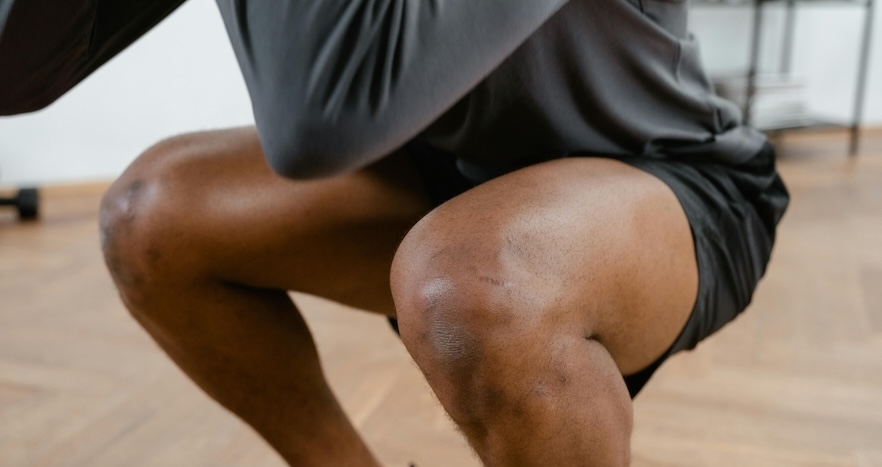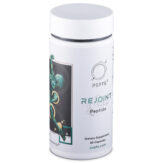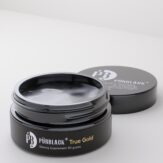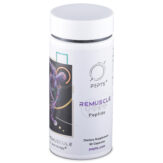Introduction: Understanding Knee Pain and Its Impact on Daily Life
Knee pain is one of the most common complaints affecting millions of people worldwide. It can range from a mild discomfort to debilitating pain that limits mobility and daily activities. Conditions such as knee pain when squatting, aching pain above the knee, or pain at the back of the knee are often signs of underlying issues like cartilage wear, joint inflammation, or tendon strain. These problems can worsen over time, leading to chronic conditions if left untreated.
The knee joint is a complex structure comprising bones, cartilage, ligaments, and tendons, all working together to provide stability and mobility. However, due to its role as a weight-bearing joint, the knee is highly susceptible to injuries and degenerative changes. Everyday movements like walking upstairs, bending, or even sitting for long periods can exacerbate pain, particularly in cases of weakened cartilage or inflamed tissues.
The Complexity of Knee Pain
Knee pain is not a one-size-fits-all problem. Its location and severity often point to specific underlying issues:
- Knee pain when squatting: This is often caused by patellofemoral pain syndrome, where the kneecap doesn’t move smoothly over the femur, irritating the surrounding tissues.
- Knee pain at night: Inflammation or joint stiffness can worsen during rest, disrupting sleep and hindering recovery.
- Interior knee pain: Medial cartilage wear or ligament strain is a common culprit.
- Pain at the back of the knee: Often linked to tight muscles, Baker’s cysts, or tendon issues.
- Pain above the kneecap: Could indicate quadriceps tendonitis, a condition resulting from overuse or strain.
Knee Pain’s Broader Impact
Chronic knee pain can lead to a cascade of issues affecting overall health. Limited mobility reduces physical activity, which in turn can result in weight gain, cardiovascular issues, and reduced muscle strength. Emotional well-being may also suffer as individuals struggle with frustration or the inability to maintain their usual activities.
The Importance of Proactive Care
Ignoring knee pain can lead to worsening joint health and, in severe cases, the need for invasive solutions like knee replacement surgery. While knee replacement can provide relief for some, it comes with significant drawbacks, including lengthy recovery periods, potential complications, and high costs. For those seeking to avoid surgery, advanced, science-backed alternatives like Pürblack ReJoint offer hope by addressing the root causes of joint degeneration.
The next sections will delve into how targeted peptides like Pürblack ReJoint, combined with the absorption-enhancing benefits of shilajit resin, provide a revolutionary approach to joint health, promoting cartilage repair, reducing inflammation, and enhancing overall knee function.
Common Causes and Locations of Knee Pain
Knee pain arises from a variety of causes, each closely tied to specific anatomical and functional aspects of the joint. Understanding these origins is crucial for targeting treatment effectively and avoiding long-term damage.
The knee joint is a hinge joint formed by the femur (thighbone), tibia (shinbone), and patella (kneecap). Cartilage, ligaments, tendons, and synovial fluid work together to ensure smooth movement and stability. However, as one of the most load-bearing joints in the body, it is highly susceptible to injury, overuse, and degenerative conditions. For example, activities like walking, squatting, or climbing stairs can place forces on the knee that are three to seven times greater than body weight, particularly under improper alignment or weakened support structures.
Knee pain when squatting is commonly caused by patellofemoral pain syndrome (runner’s knee), where the kneecap does not glide smoothly over the femur, leading to inflammation and discomfort. This condition is often exacerbated by muscle imbalances or improper squat mechanics, which overload the front of the knee. Studies show that this type of pain affects up to 25% of the general population, particularly those who engage in repetitive bending activities.
Knee pain at night is a hallmark of conditions such as osteoarthritis or bursitis, where inflammation persists even at rest. Osteoarthritis, a degenerative joint disease affecting 32.5 million Americans, involves the gradual breakdown of cartilage, leading to joint stiffness and pain that can worsen overnight. Bursitis, the inflammation of fluid-filled sacs that cushion the joint, can also flare up when lying down due to prolonged pressure on the knee.
Interior knee pain, or pain on the medial side of the knee, is often tied to injuries or degeneration of the medial meniscus or medial collateral ligament (MCL). These structures are critical for stabilizing the knee during movement, and damage can result in sharp or aching pain, particularly during twisting motions or weight-bearing activities.
Pain at the back of the knee, known as posterior knee pain, can be linked to hamstring tendinopathy, Baker’s cysts, or deep vein thrombosis (DVT). While tendinopathy results from overuse or strain on the hamstring tendons, Baker’s cysts are fluid-filled sacs caused by excessive joint fluid production, often due to arthritis or injury. Although less common, posterior knee pain may signal a blood clot in the leg, necessitating immediate medical attention.
Pain above the kneecap typically stems from quadriceps tendonitis, a condition caused by repetitive strain on the tendon connecting the quadriceps to the patella. This is common in athletes who perform frequent jumping or sprinting activities. Over time, microtears in the tendon can lead to inflammation and chronic discomfort.
Everyday activities such as walking upstairs can amplify existing knee pain, especially in cases of patellar tracking disorder or weakened cartilage. Studies indicate that climbing stairs places significant stress on the knee joint, increasing compressive forces on the kneecap by up to eight times body weight.
Finally, aching pain above the knee may signal strain in the quadriceps muscle or irritation of the suprapatellar bursa, a fluid-filled sac that cushions the femur and patella. This type of pain is often aggravated by prolonged sitting or physical overexertion.
These varied causes highlight the complexity of knee pain and the necessity of treatments that address both structural and functional health. Targeted therapies, like Pürblack ReJoint, aim to repair cartilage, reduce inflammation, and strengthen the knee’s natural support systems, offering a promising alternative to invasive interventions such as surgery.
The Challenges of Knee Replacement Surgery
Knee replacement surgery, also known as total knee arthroplasty, is often considered a last resort for managing severe knee pain and degeneration. While it can restore mobility for some, the procedure comes with notable challenges and potential drawbacks that make non-invasive alternatives worth exploring.
Knee replacement involves replacing the damaged cartilage and bone with artificial implants. Although effective for advanced joint deterioration, the procedure is not without risks. According to the American Academy of Orthopaedic Surgeons, complications occur in up to 20% of cases, including infection, blood clots, implant loosening, and persistent pain. Furthermore, a 2019 study in The Journal of Bone and Joint Surgery revealed that about 20% of patients experience dissatisfaction with their knee function even after surgery.
Recovery from knee replacement surgery is often lengthy and demanding. It typically requires months of physical therapy, with many patients experiencing significant discomfort during the healing process. In addition, even with successful surgery, artificial joints have a limited lifespan. On average, knee implants last 15–20 years, meaning younger patients may face the prospect of a second surgery later in life.
Cost is another major consideration. Knee replacement surgeries in the United States can cost around $20,000, depending on the complexity and whether complications arise. For those without comprehensive insurance coverage, this expense can be prohibitive.
Moreover, knee replacement surgery cannot fully replicate the natural function of a healthy joint. Artificial knees lack the adaptability of natural cartilage, and activities like running or high-impact sports may remain limited. For many patients, this leads to a continued decrease in quality of life, even post-surgery.
Given these challenges, exploring non-invasive options like Pürblack ReJoint is critical. By addressing the root causes of knee pain—such as cartilage degeneration, inflammation, and joint instability—ReJoint offers a safer, science-backed approach to joint health. Its targeted peptide formulation supports cartilage synthesis and repair, potentially delaying or even eliminating the need for surgery. When combined with the bioavailability-enhancing properties of shilajit resin, ReJoint provides a holistic solution for knee pain that promotes long-term joint health without the risks of invasive procedures.
How Pürblack ReJoint Supports Knee Health
Pürblack ReJoint is a groundbreaking solution designed to address knee pain at its source by targeting the biological mechanisms responsible for joint health and repair. Unlike conventional treatments that may only mask symptoms, ReJoint works at the cellular level to enhance cartilage function, reduce inflammation, and support long-term joint resilience.
At the heart of ReJoint’s efficacy is its innovative peptide complex, featuring the IPH AEN short-chain peptide. This peptide is scientifically designed to interact with the COMP gene (Cartilage Oligomeric Matrix Protein), a key regulator of cartilage integrity and joint function. By supporting COMP’s healthy activity, ReJoint stimulates the production of new cartilage cells, helping to repair and regenerate damaged tissue. This is particularly crucial for conditions causing knee pain when squatting, interior knee pain, and pain at the back of the knee, where cartilage degradation often plays a significant role.
In addition to cartilage synthesis, ReJoint enhances the body’s natural anti-inflammatory responses. Chronic inflammation is a common factor in joint pain, contributing to swelling, stiffness, and discomfort, especially in cases of knee pain at night or aching pain above the knee. ReJoint’s peptide formula promotes a balanced inflammatory response, reducing swelling and improving mobility over time. Studies have shown that its ingredients can elevate cartilage function by an impressive 20-30%, providing tangible improvements in joint performance and flexibility.
ReJoint’s benefits extend beyond immediate pain relief. By promoting the synthesis of robust cartilage and bone cells, it actively supports the anti-aging of joints. This means it not only addresses current knee pain but also helps protect the joint from future wear and tear. For individuals experiencing strain from activities like walking upstairs or high-impact exercises, this long-term support is invaluable in maintaining mobility and reducing the risk of further damage.
When combined with shilajit resin, ReJoint becomes even more potent. Shilajit is a natural bioactive compound known for its ability to enhance nutrient absorption. It contains fulvic acids, humic acids, and over 80 trace minerals, all of which improve the bioavailability of the IPH AEN peptide and other active ingredients in ReJoint. This synergistic effect ensures that the body maximally utilizes the supplement’s components, amplifying its joint-repairing properties.
Pürblack ReJoint offers a science-backed, natural alternative to invasive treatments like knee replacement surgery. By targeting the root causes of knee pain and degeneration, it empowers individuals to regain their mobility and live pain-free, active lives. Through consistent use, ReJoint not only alleviates pain but also nurtures healthier, more resilient joints, making it an essential tool for anyone seeking to improve knee health.
Strengthening the Muscles Around the Knee for Better Joint Health
Strong muscles surrounding the knee joint play a crucial role in protecting it from excessive stress, injury, and degeneration. These muscles act as natural shock absorbers, providing stability and reducing the load on cartilage and ligaments. Weak or imbalanced muscles can lead to overcompensation by the joint structures, often exacerbating conditions like knee pain when squatting or pain at the back of the knee.
Building and maintaining robust muscles, particularly in the quadriceps, hamstrings, and calves, is essential for joint health. For individuals looking to strengthen these muscles effectively, Pürblack’s ReMuscle peptide offers a scientifically advanced solution.
ReMuscle is crafted with IPH AGAA, a short-chain natural peptide specifically designed to promote muscle regeneration and reduce fat accumulation. This peptide not only accelerates the repair of muscle tissue but also enhances its quality, ensuring faster recovery and improved functionality. The inclusion of Leucine, Valine, and Isoleucine—essential amino acids known for their role in muscle metabolism—further boosts tissue quality, promotes healthy blood flow, and maintains optimal water balance.
Strong muscles don’t just enhance performance; they also protect the knees by stabilizing the joint and minimizing undue stress during activities like climbing stairs or bending. ReMuscle’s ability to rejuvenate muscle tissue and improve strength, flexibility, and resilience makes it an ideal companion for anyone managing knee pain or seeking to prevent it.
Moreover, ReMuscle provides benefits that go beyond muscle strength. It supports heart health, promotes microcirculation in muscle tissues, and bolsters muscle metabolism. For individuals recovering from joint pain, having healthier, stronger muscles can significantly reduce the risk of further joint degradation and improve overall mobility.
By incorporating ReJoint and ReMuscle into a comprehensive joint-care regimen, you can address both the structural and muscular aspects of knee health. While ReJoint works to repair cartilage and reduce inflammation, ReMuscle strengthens the surrounding muscles, creating a holistic approach to managing knee pain and enhancing long-term joint performance. Combined with shilajit resin to boost absorption and efficacy, these peptides represent a powerful, natural alternative to invasive treatments.
The Science Behind Targeted Peptides and the COMP Gene
Pürblack ReJoint stands apart from conventional joint supplements by leveraging the power of targeted peptides, particularly the IPH AEN short-chain peptide. This innovative peptide works at the genetic level, directly supporting the COMP gene (Cartilage Oligomeric Matrix Protein), which plays a vital role in maintaining the integrity and elasticity of cartilage. By stimulating COMP activity, ReJoint promotes the synthesis of new cartilage cells and enhances the overall functionality of joint tissues.
Cartilage, the smooth tissue that cushions bones in the knee joint, is essential for pain-free movement. However, cartilage has limited self-repair capacity, which makes damage from overuse, aging, or injury a significant challenge. Studies show that chronic conditions like osteoarthritis or degenerative joint disease often stem from the gradual breakdown of this crucial tissue, leading to symptoms such as knee pain walking upstairs, aching pain above the knee, or pain above the kneecap.
ReJoint addresses these issues by activating natural repair mechanisms. Its IPH AEN peptide not only boosts cartilage regeneration but also reduces inflammation—a common driver of joint pain and stiffness. Chronic inflammation can hinder healing, increase cartilage wear, and intensify pain during movements like squatting or climbing stairs. ReJoint helps modulate the body’s inflammatory response, ensuring a healthier environment for cartilage restoration.
What sets ReJoint apart is its measurable impact on cartilage function. Clinical research demonstrates that targeted peptides like IPH AEN can enhance cartilage performance by an impressive 20-30%. This improvement translates to greater flexibility, reduced pain, and enhanced joint resilience, making ReJoint a valuable tool for managing knee pain at night, interior knee pain, and other common complaints.
To further maximize the efficacy of ReJoint, it is combined with shilajit resin, a natural bioactive compound renowned for its ability to improve nutrient absorption. Shilajit contains fulvic acids, humic acids, and over 80 trace minerals that enhance the bioavailability of the IPH AEN peptide, ensuring it is efficiently utilized by the body. This synergistic approach not only accelerates cartilage repair but also provides holistic support for joint health.
Together, ReJoint and its supporting science provide a cutting-edge, non-invasive solution for individuals seeking relief from knee pain and a long-term strategy for joint health. By addressing both the structural integrity of cartilage and the body’s ability to repair it, ReJoint delivers tangible improvements that help individuals stay active, mobile, and pain-free.
The Role of Shilajit Resin in Enhancing Absorption
Shilajit resin, a natural bioactive compound, plays a pivotal role in enhancing the effectiveness of targeted peptides like those found in Pürblack ReJoint. Known as a “nutrient booster,” shilajit improves the bioavailability of active ingredients, ensuring that the body absorbs and utilizes them more efficiently. This makes it a crucial complement to ReJoint’s IPH AEN peptide and ReMuscle’s IPH AGAA peptide.
Derived from mineral-rich deposits in the mountains, shilajit contains a unique combination of fulvic acids, humic acids, and over 80 trace minerals. These components work synergistically to transport nutrients deep into cells, amplifying their effects. When combined with ReJoint, shilajit enhances the peptide’s ability to target the COMP gene, further promoting cartilage repair and reducing inflammation.
Shilajit’s benefits extend beyond absorption. It supports joint health by delivering essential minerals that aid in cartilage and bone regeneration. For those experiencing pain at the back of the knee, knee pain walking upstairs, or aching pain above the knee, the additional nutrients provided by shilajit can accelerate recovery and enhance overall joint resilience.
Moreover, shilajit’s adaptogenic properties help the body manage stress, which is often linked to inflammation and joint pain. Its ability to support cellular energy production ensures that tissues, including cartilage and muscles, have the resources they need to repair and strengthen. This is particularly beneficial when paired with ReMuscle, as shilajit helps maximize the peptides’ impact on muscle regeneration and metabolic balance.
Scientific studies support shilajit’s role in nutrient absorption. Research shows that fulvic acid, a key component of shilajit, increases the permeability of cell membranes, allowing for better transport of nutrients. This effect amplifies the efficacy of Pürblack’s peptides, providing a powerful one-two punch against joint and muscle degeneration.
Incorporating shilajit resin alongside Pürblack’s targeted peptides creates a holistic approach to managing knee pain and improving joint health. By enhancing absorption, delivering essential nutrients, and supporting cellular energy, shilajit ensures that both ReJoint and ReMuscle deliver their full potential, providing a natural and science-backed alternative to invasive treatments.
Benefits of Pürblack ReJoint and ReMuscle for Knee Pain Relief
Pürblack ReJoint and ReMuscle offer a comprehensive approach to managing knee pain by addressing both the structural integrity of the knee joint and the strength of the surrounding muscles. This dual-action strategy is key to relieving pain, restoring mobility, and preventing further joint degeneration.
ReJoint focuses on cartilage repair and anti-inflammatory support, making it ideal for those experiencing common complaints such as interior knee pain, pain above the kneecap, or knee pain when squatting. Its IPH AEN peptide targets the COMP gene, stimulating the production of new cartilage cells and enhancing cartilage function by up to 30%. This not only alleviates pain but also provides long-term protection against joint wear and tear. By reducing inflammation, ReJoint helps individuals regain comfort and mobility, even during challenging activities like walking upstairs or bending.
ReMuscle complements ReJoint by focusing on the muscles that support and stabilize the knee joint. Strong, healthy muscles are essential for reducing stress on the joint, preventing injuries, and improving overall knee function. The IPH AGAA peptide in ReMuscle promotes faster muscle regeneration and tissue quality, while amino acids like leucine, valine, and isoleucine optimize muscle metabolism and water balance. This is especially beneficial for those with weakened or imbalanced muscles contributing to joint strain, as ReMuscle can enhance flexibility, resilience, and endurance.
Together, ReJoint and ReMuscle create a synergistic effect. ReJoint repairs and strengthens cartilage, while ReMuscle fortifies the surrounding muscles, ensuring that the knee joint is well-supported during physical activity. For individuals dealing with knee pain at night, aching pain above the knee, or even recovery after injury, this combination offers a natural, non-invasive alternative to surgery.
The addition of shilajit resin amplifies these benefits by enhancing the bioavailability of both peptides, ensuring that the body fully absorbs and utilizes their active components. Shilajit also provides essential minerals and adaptogenic properties that further support joint and muscle health.
With ReJoint, ReMuscle, and shilajit resin, Pürblack delivers a science-backed, holistic solution for knee pain relief. Whether you’re looking to avoid invasive treatments, improve mobility, or support an active lifestyle, these targeted supplements provide the tools to nurture joint health and build a foundation for long-term well-being.
Conclusion: A Holistic Solution for Knee Pain Relief and Joint Health
Knee pain can significantly impact quality of life, but addressing it doesn’t have to mean resorting to invasive treatments like knee replacement surgery. By combining science-backed innovations with natural bioactive ingredients, Pürblack offers a comprehensive solution through ReJoint and ReMuscle. These targeted peptides address both the structural and muscular aspects of knee health, providing relief from pain and long-term support for joint and muscle function.
ReJoint’s ability to repair cartilage, reduce inflammation, and promote anti-aging effects on joints makes it an ideal choice for tackling pain associated with cartilage wear, stiffness, and mobility limitations. Complementing this, ReMuscle strengthens the surrounding muscles, ensuring the knee joint is well-supported and protected against further strain.
Enhanced by the nutrient-boosting power of shilajit resin, these supplements work synergistically to maximize absorption and effectiveness, helping individuals regain mobility, flexibility, and resilience. Together, they offer a natural, safe, and non-invasive approach to knee pain relief, allowing people to reclaim their active lifestyles and avoid the challenges of invasive surgeries.
With Pürblack ReJoint and ReMuscle, along with a commitment to consistent use and a healthy lifestyle, managing knee pain and enhancing joint health is no longer a distant goal—it’s an achievable reality.




